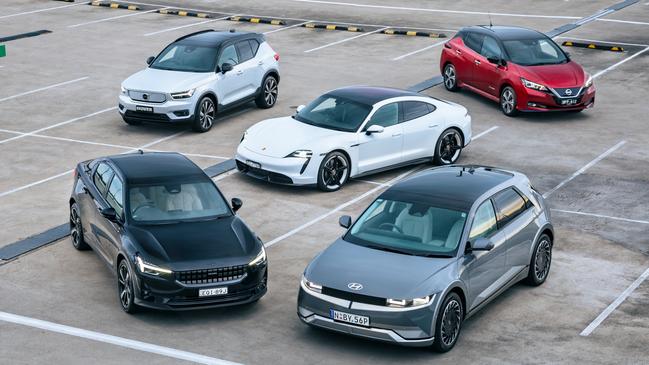States refuse to commit to ban on petrol and diesel cars
Governments around the nation have outlined their plans to shift from petrol to electric vehicles after the ACT announced a controversial ban.
Motoring News
Don't miss out on the headlines from Motoring News. Followed categories will be added to My News.
State governments have stopped short of endorsing an ACT government plan to ban sales of petrol and diesel cars by 2035.
Victoria, Queensland and NSW are each aiming for an EV-dominated car industry by 2030 but none have committed to an end date for petrol and diesel engines.
NSW Treasurer and Minister for Energy, Matt Kean, said the state’s $633 million EV strategy would “help the NSW vehicle fleet transition to electric in line with our 2050 net zero target”.
“Under the EV Strategy released in 2021, the NSW Government will drive sales of electric vehicles to more than 50 per cent of new passenger vehicles by 2030-31 and expects the vast majority of new vehicles to be EVs by 2035,” he said.

Mr Kean said “international trends” would hasten the changeover to electric vehicles.
General Motors plans to phase out electric vehicles by 2035, while Volvo and Mini will go all-electric by 2030. Ford plans to sell its last petrol-powered car in Europe by 2030.
The European Union has agreed to stop sales of new petrol and diesel cars – with some low-volume exceptions – by 2035.
The Victorian Government is aiming for half of all light vehicle sales to be electric by 2030. However that doesn’t include work utes, which make up 25 per cent of the new-car market.
“We’ve set an ambitious target that will see half of all light vehicle sales in Victoria be Zero Emissions Vehicles by 2030, and we’re fuelling that with 20,000 subsidies and delivering fast-charging stations across the state,” Victorian Minister for Energy Lily D’Ambrosio said.

Queensland’s Minister for Transport and Main Roads, Mark Bailey, stopped short of proposing a ban on petrol and diesel vehicles.
“Our strategy outlines our target of 50 per cent new car sales being zero emission by 2030, which we’re encouraging through $3000 rebates on selected models and extra charging infrastructure,” Mr Bailey said.
He said the government would also expand the number of EVs in its fleet to “help kickstart the second hand EV market, making them more accessible to those who are looking to transition.”
“We are not currently looking to legislate a ban on ICE (internal combustion engine) vehicles but will continue to encourage the uptake of EVs right across the state,” he said.

Queensland, Victoria and NSW all offer $3000 subsidies to EV buyers for cheaper electric cars, while the Federal Government has announced it will waive the 5 per cent tariff on electric car imports and the 47 per cent fringe benefits tax on EVs provided by employers.
It has, however, so far stopped short of introducing a mandatory vehicle CO2 emissions target, which car manufacturers argue is necessary to grow EV sales in Australia.
Car makers argue that without a mandatory CO2 target, which is in place in most other markets, Australia will become a dumping ground for inefficient vehicles.
They claim that head offices around the globe are prioritising EV deliveries to countries with CO2 targets and penalties.
Kia and Hyundai have been unable to secure enough volume of their latest EVs, creating long waiting lists for prospective buyers.



